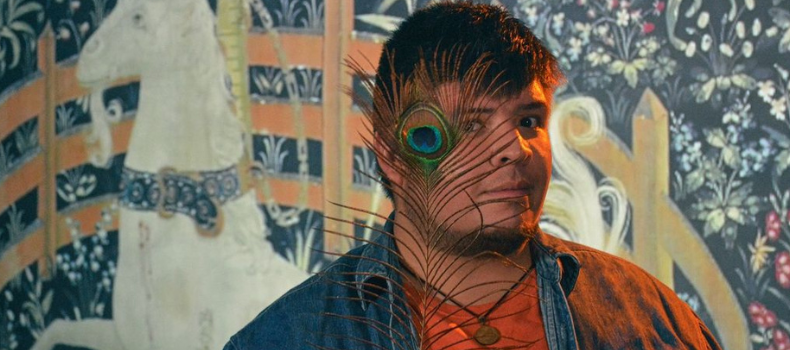Celebration of the Costa Rican Book Fair: the new voices of Costa Rican Literature

It was on April 23, 1616 when three greats of world literature died: Miguel de Cervantes, William Shakespeare and Inca Garcilaso de la Vega.
In 1995, at UNESCO’s General Conference, the member countries decided to pay a worldwide tribute to these three greats, to books and to the millions of writers and writings in the world. According to the same organization, “it is a celebration to promote the enjoyment of books and reading”.
Since then, every April 23rd, International Book Day is celebrated worldwide, a date established by UNESCO since 1988 and a celebration that does not go unnoticed in Costa Rica. Traditionally for this date, the National Festival of Books and Libraries is held in the country, with exhibitions, lectures and discussions. This allows to promote the closeness between readers and writers through the presentation of books, creating encounters with them, as well as public readings. However, in recent years it has been affected by the pandemic and has been carried out in different ways.
One of the national authors worth highlighting is someone who noticed how his novel had been successful thanks to this Fair, when announcing his participation in a book signing, he noticed the great support of many Costa Ricans. It was something he didn’t expect. The readers expected to meet a foreign author, but were surprised to see that Rod Saturnine was a Costa Rican from the Greater Metropolitan Area with a great capacity to tell fantasy stories that transcend the limits of imagination.
Rod Saturnine
The creator of the Ethisiel saga, he tells us that the person behind his stage name was the one who took the initiative to publish without fear of being judged under the name Rod Saturnine. Publishing under relative anonymity allowed the story to speak for itself. An additional unplanned advantage that the pen name generated was a greater interest from the general public to read the work when considering that it was a foreign book.
Although in Costa Rica there is not yet such a consolidated publishing system for fiction works, there is also a general belief that local artists cannot aspire to make a living from their creations. Rod Saturnine tells us that he had this same thought at some point, either by himself or by people close to him who generated an insecurity to pursue what he was passionate about. Now, he is the one who inspires others by proving that it is possible.
Beginnings
Saturnine began the Ethisiel saga with the novel The Light at the End of the World. Her research on publishing houses in Costa Rica indicated that it would be very difficult for her work to be selected due to its juvenile fantasy genre, which is rarely seen among national authors. This, along with the conviction that she had to try, led her to self-publish the first version of the book. But having a published book does not guarantee distribution.
For this next step, Saturnine had to go knocking on doors, taking copies to different bookstores to offer it in the hope that they would be interested. The Lehmann Bookstore is the first one that decided to open its doors to her, as part of its mission to support national writers, and where the sale of the book began. Since then, its popularity has been on the rise, with opportunities at book fairs, signings and other public events that demonstrate the public’s affection for the saga.
From there, a second stage emerges for Saturnine and Ethisiel. By capturing the attention of the public, he also captures the attention of a newly founded publishing house, which offers him the opportunity to work together and take the distribution of The Light at the End of the World to another level, as well as ensuring the publication of the rest of the main saga with the support of a whole team behind it. Interestingly, much of the popularity of the novels has come about organically as, although Saturnine himself started social media pages for the novels, he did not run major promotional campaigns. The initial novel received a lot of support from different booktubers and bookstagrammers who spread the word and responded to the quality of the narrative, building confidence in those who were considering buying the book.
The work was born as a metaphor about death, the enigma that surrounds this terminal effect of life, generating fear. This concept is what inspired the author to ask himself: what would happen if death, an immortal being, had a mortal daughter who has her time counted? An unknown that shows that pain and fear are a side effect of the prognosis of death, that is, that it can affect the body, mind and emotions. A spiritual way of capturing this fantasy. Here, the daughter of death has no clear memory of her past, yet she possesses an instinct that seeks to fit into the spirit world. Fate is in charge of putting her to the test. Given this premise, it was thought that it would not fit into the juvenile genre, but it managed to exceed expectations, putting to the test the myth that young Costa Ricans do not read.
Projects
Since its initial conception, the world of Saturnine has expanded to 7 novels and an additional book of short stories from this fantasy world. Four of the novels follow the story of Clara, the daughter of death, and her adventure into Ethisiel. The other 3 are parallel stories, with some already known characters, that converge in Clara’s life for the grand finale. Currently, the first two novels have been published: The Light at the End of the World and The Crystal Prince, along with the special book of short stories Winds of Change. The third novel, The Darkness Above Me, is forthcoming.
Additionally, for those who don’t enjoy reading as much but would like to know the story, a movie of the first novel, titled Death’s Daughter, is currently in post-production. The film was developed by Sparkle Studio under the direction and screenplay of Carlos Blanco with Rod Saturnine as co-writer.
The literary world in Costa Rica
Within the country, publishers have clear lines but are willing to lend a hand to independent authors. For the promotion of new voices in literature, in genres such as short stories, novels, poetry, essays, chronicles, among others, advice, promotional events and promotion on social networks is the main help provided by these entities.
One of the best ways to access publishers is through participation in contests. There are at least 3 annual contests that have launched the careers of many authors. The most important thing, as Rod Saturnine says, is to have a work ready to send, not to wait for them to be announced before starting to work.
Anyone can print a quality book, but few come close to reach the standards of a true showpiece, since this is a whole process, from writing to dissemination and marketing. Knocking on doors and seeking self-disclosure is the best option to make oneself known. The limitation is created by the human mind itself. Although the market is not as wide as in other countries, there are always spaces for new authors with unique and innovative voices.
Authors
Angie Loveday y Zelda Walters in collaboration with Rod Saturnine
for Sensorial Sunsets
Navigate articles






